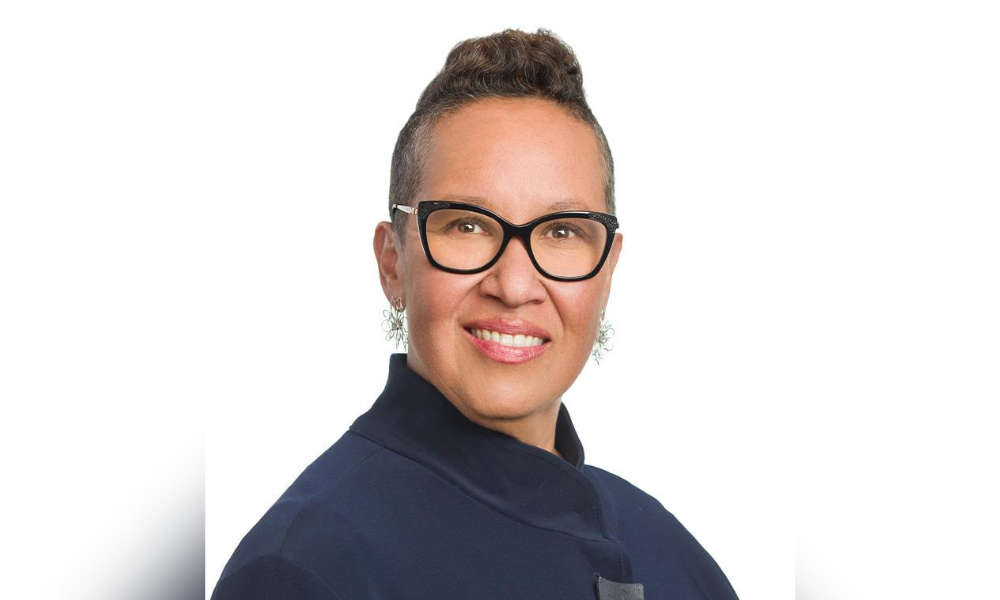
Shereen Samuels says those who adopted DEI initiatives for the optics now see a chance to reverse them

Those implementing DEI strategies and those benefiting from them feel a “high level of fear and anxiety” about the possibility of the pushback seen in the United States spilling over to Canada, says Shereen Samuels, Head of Diversity, Equity and Inclusion at Gowling WLG.
A rising number of DEI professionals worry that opponents will capitalize on the momentum from the US and roll back progress made in Canada, she says.
She recalls that uncertainty dominated a recent DEI practitioners' community meeting she is part of.
“There are relatively small groups of DEI naysayers that certainly feel emboldened … to be vocal and attempt to make demands … that DEI be taken off the table,” Samuels says.
She says the situation is evolving, and what holds now may shift in six months or a year.
However, she says, most Canadian organizations and institutions are still refusing to remove these initiatives from the table.
Samuels says that DEI work has never been uncontested – pushback has always been there – except for a brief period following the killing of George Floyd when momentum made it easier to push forward.
Now, she says, firms can reveal their genuine commitment – or lack of it.
“In the law firm I work in, the commitment remains strong, and the demonstrable dedication … to push forward with our efforts remains unchanged. That tends to be the story I'm hearing from my colleagues,” she says.
Samuels says law firms and other organizations committed to long-term change are not retreating, and some are even increasing their DEI budgets pre-emptively even though they have yet to see pushback.
She adds that this moment presents an opportunity to disengage quietly for organizations that adopted DEI initiatives only for the optics.
Samuels says one of the most significant DEI shifts is generational. Millennials and Generation Z – who now comprise a substantial portion of the workforce – grew up with human rights protections and workplace equity as the norm.
“What I find now is that people’s ability to understand the issues and hold companies accountable for DEI progress has gone to another level in terms of sophistication,” she says.
“It used to be that 10 or 15 years ago, the question was, ‘Do you have a DEI policy?’ That was considered enough. Now, people don’t care whether you have a policy – they want to know what you’re actually doing and what results you’re achieving,” she says.
As scrutiny of DEI efforts intensifies, Samuels says these expectations are unlikely to fade, even as opposition grows.
While some law firms struggle with DEI implementation, Samuels says many DEI professionals face crippling burnout, and the stress can set in within just two years.
She says one major challenge is the lack of clear standards for the profession.
“What does the work look like day today? What are the elements of an effective DEI strategy in the workplace? What skills do you need to be a practitioner? What does success look like? None of that is written in a manual anywhere,” Samuels says.
Many DEI professionals come from marginalized backgrounds, making them deeply invested in the work. But Samuels says that passion alone is not enough to sustain them.
The devotion “doesn’t always come with actual expertise in organizational change work, which is what DEI is,” she says, adding that a lack of a roadmap makes burnout more of a rule than an exception.
“If all you're coming with is a desire to make things better based on the experiences you have had of marginalization, you are swimming in a sea of more and more proof that marginalization exists with change happening at a very slow pace and that can be incredibly demoralizing,” she adds.
She says the key to avoiding burnout is understanding DEI as a slow, systemic change process rather than expecting immediate results.
“DEI is not a thing where you put in your quarter and get your candy. It’s a long, slow process,” she says.